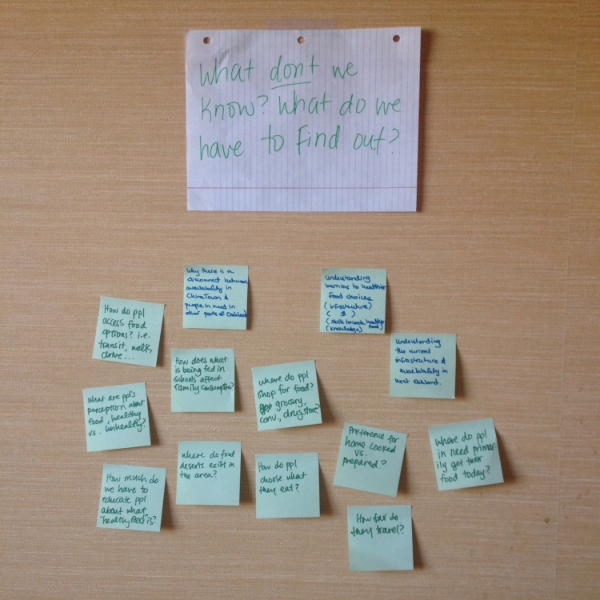A few weeks ago, I enrolled in Design Kit: The Course for Human-Centered Design, a seven-week online course offered by IDEO.org and Acumen. The course provides an opportunity for people who are interested in learning about human-centered design and how it can offer new perspectives on social sector challenges across the world. One of the reasons I decided to take this course is that it allows me to put into practice processes that I had previously done piecemeal or only read about.
I joined an amazing team of women (our first assignment) with backgrounds in international development, branding and mechanical engineering. For our second assignment, we met for the first time face-to-face in Jack London Square at the home of one of the participants. We went through the coursework and selected our Challenge for the duration of the course - How Might We Provide Healthier Food Options for People in Need?
We started by brainstorming what we knew; what were our assumptions around healthy food and access; and what we didn't know. Then we planned out the fieldwork by making a list of people who we'd like to reach out to for research. My teammate Radha and I decided to visit two organizations in West Oakland, People's Grocery and Mandela Food Cooperative; then follow up with phone calls to more policy-oriented ones. We crafted a list of interview questions based on the people and organizations we decided to reach out to. Our next step involves conducting interviews (next blog post).


